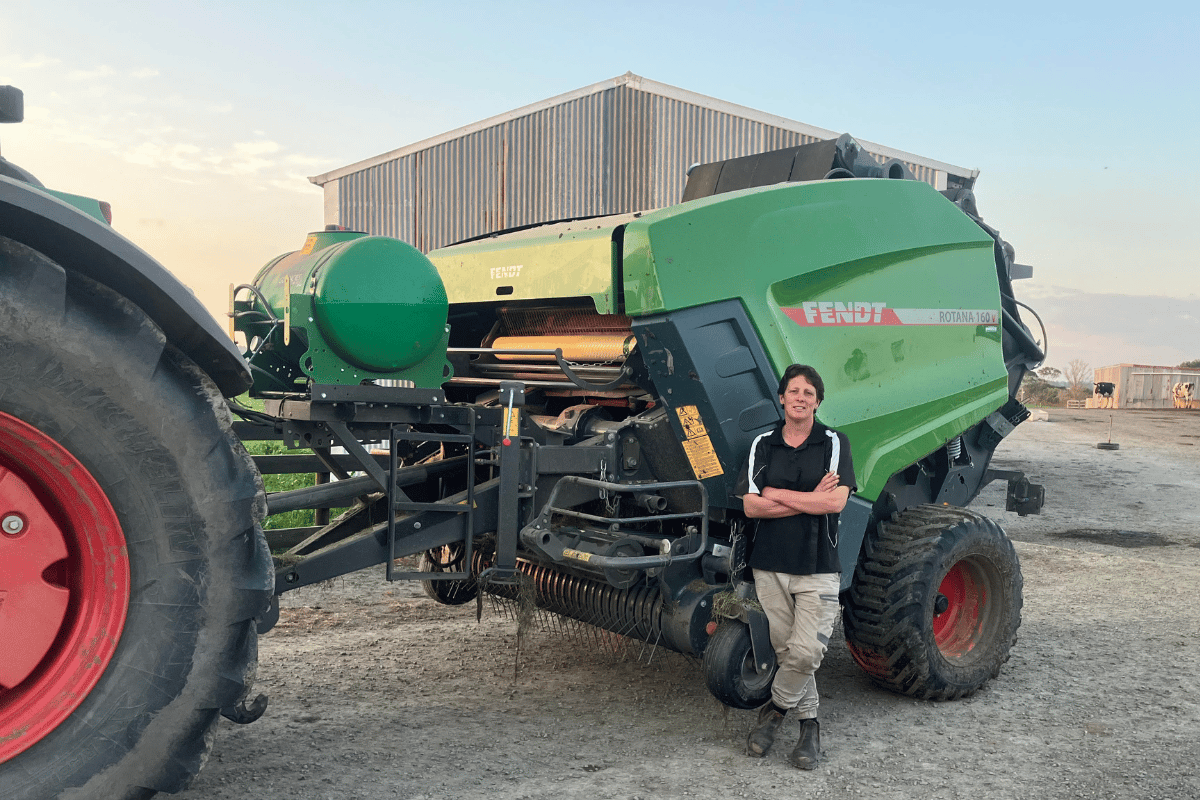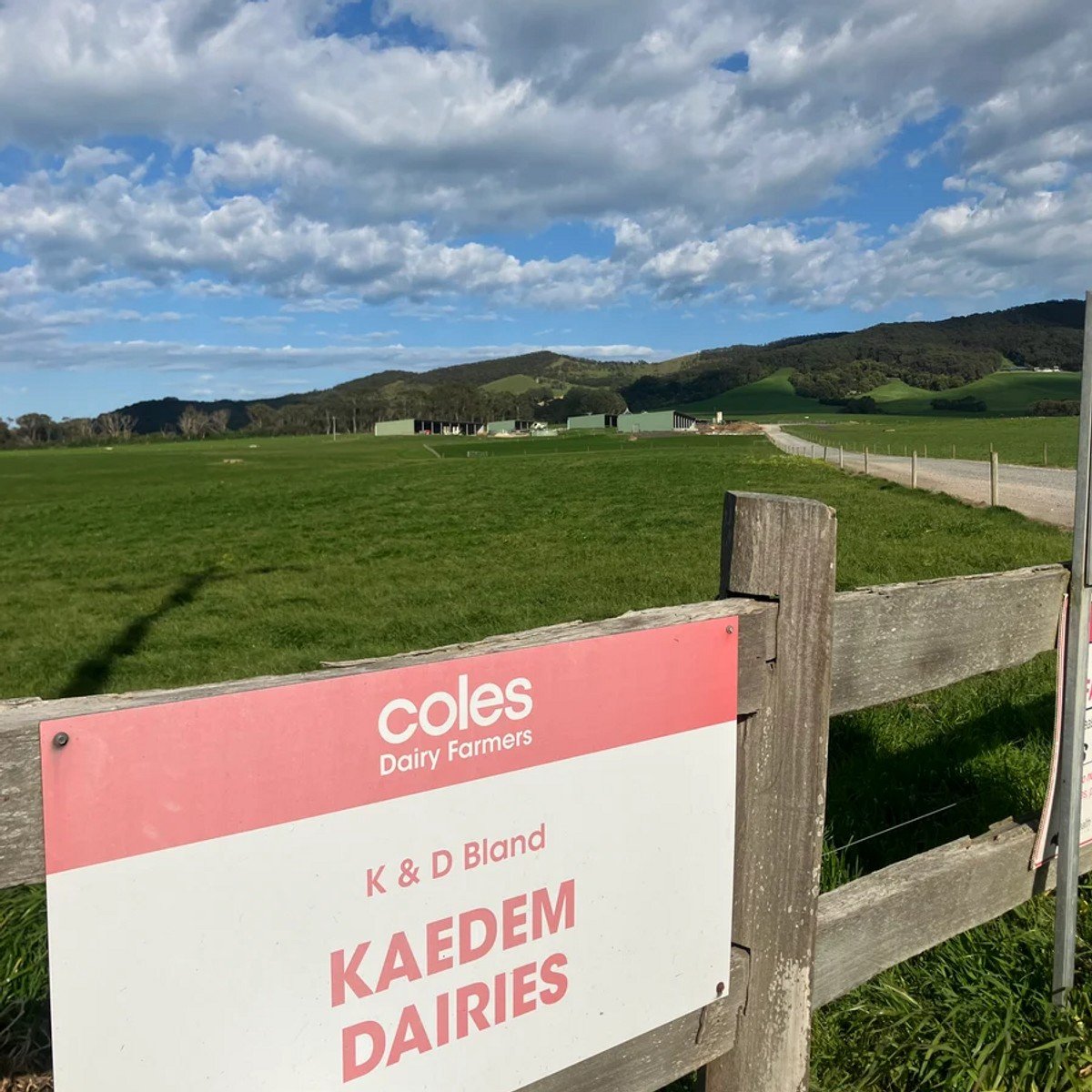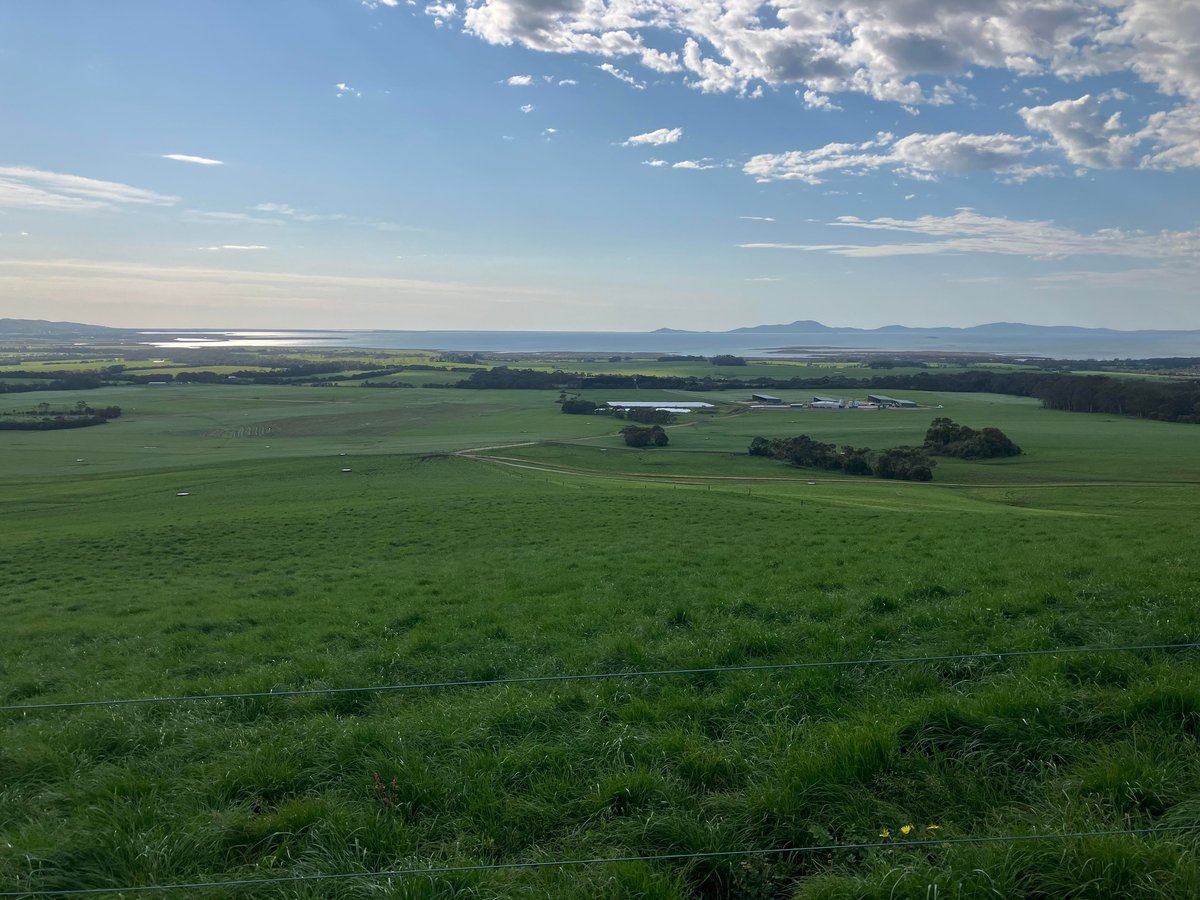

Kate Bland can't imagine doing what I do.
By the time I sit at my desk and crack open one of the five apps my colleagues are messaging me on, Kate's already been up for hours, singing at the top of her lungs in her farm's shiny new dairy, doing the first milk of the day.
When I walk into the podcast studio to sit down (again) and start talking about celebrities, politics and skinny jeans, Kate is probably out mending fences on her property, dealing with whatever the season is throwing at her, looking out over stunning Wilsons Promontory in Gippsland, Victoria.

